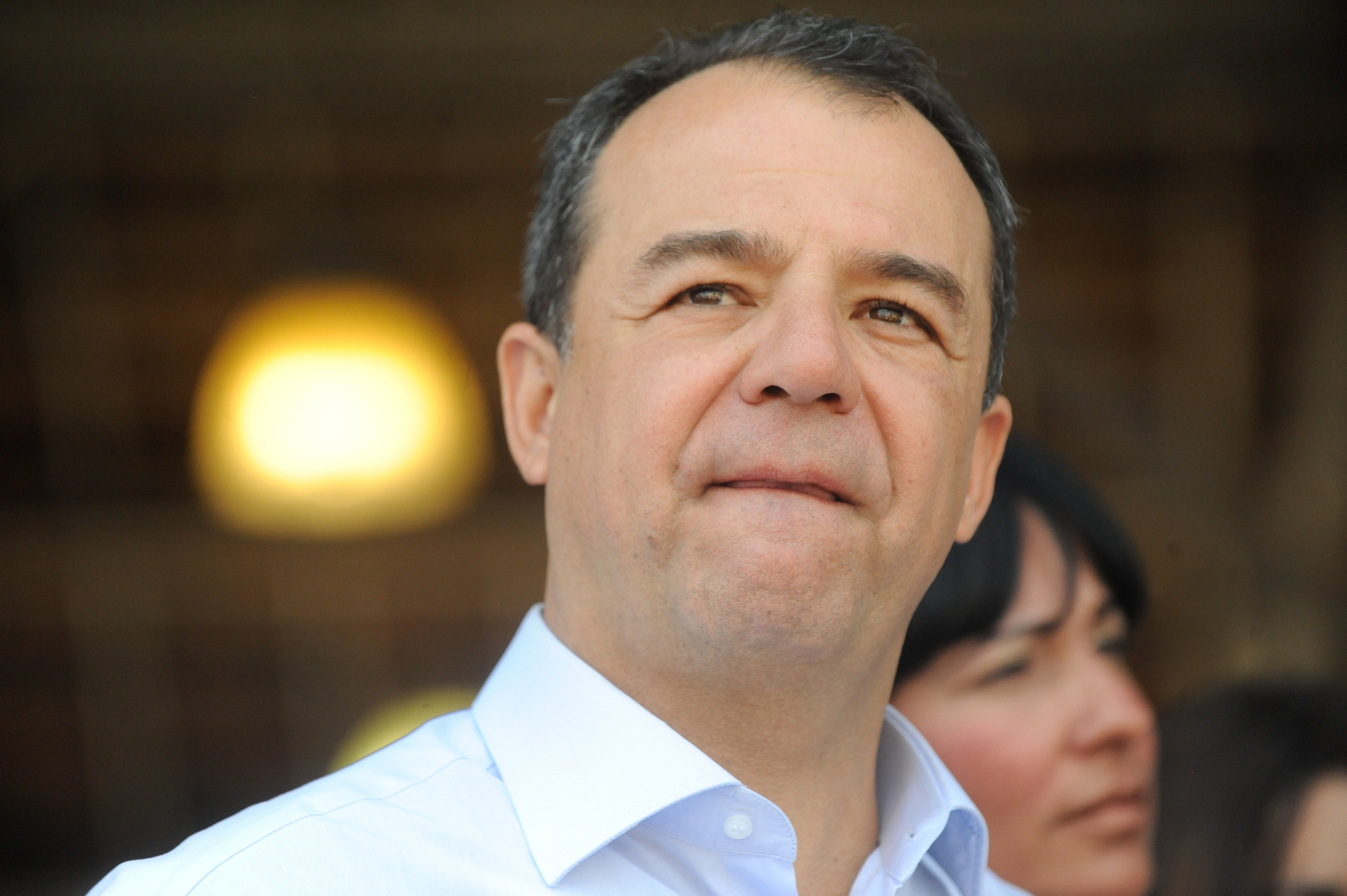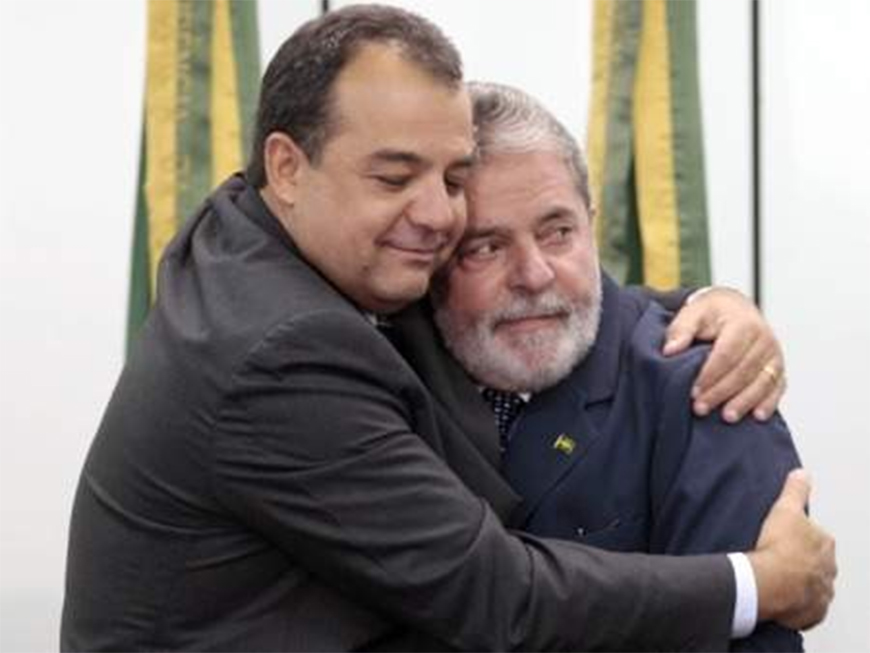(Opinion) Remember when Luiz Lula da Silva, today’s President-elect, miraculously and out of the blue got out of jail in April 2021 due to a ‘conflict of competence’ that his friends in the Supreme Court had found?
He served his 25-year prison sentence at the time with the blessing of all of Brazil for fraud and corruption, among other charges, but ended up doing only 580 days of his time.
Something similar is happening again right now. At least, it looks like it.
This time the lucky one is Sérgio Cabral, the last politician arrested in a closed regime in the wake of Operation Lava Jato, the former governor of Rio de Janeiro and visibly a ‘special’ friend to Luiz Lula da Silva (see photos below).
Read also: Check out our coverage on curated alternative narratives
He was one of the big fish among the ‘bad guys’ in the world-famous Operation Car Wash (Lava Jato), the biggest corruption scandal in Latin America.
But a couple of days ago, he received authorization from the all-powerful Brazilian Supreme Court (STF) to leave prison.

The STF revoked his pre-trial detention, and with this, he moved to house arrest while awaiting the conclusion of ongoing criminal actions. He is involved in the following:
– 33 prosecutions;
– 23 convictions;
– 523 million in bribes;
– 933 million in money laundering;
– 430 years in prison.
Just imagine for a moment what the Lavao Jato bosses must have thought of him if they wanted to send him to prison for over 400 years.
Cabral is now awaiting the conclusion of ongoing criminal actions.
Now, you maybe will ask yourself why ongoing criminal actions exist and what they are all about.
The former governor had been in preventive detention since 2016, and that’s the point.
This precautionary or procedural arrest is decreed in the course of action when there is still no final conviction.
Now, one can rightly ask why there has been no final conviction since 2016. But when you see that the man is released into house arrest today, and when you learn on what basis he is released, you immediately know why.
Preventive detentions have no set time limit but must be reviewed every 90 days by the judge in charge.
For example, they may be ordered to prevent interference in investigations or the continuation of crimes.
This means that, in practice, Cabral had not yet begun serving his sentence in the case. This is because there is still the possibility of appeal.
The STF decided in 2019 that serving a sentence only begins after all possibilities for appeal (res judicata of the conviction) have been exhausted.
Lawyers Daniel Bialski, Bruno Borrangine, Patricia Proetti, and Anna Júlia Menezes, who represent the former governor, argued precisely that the preventive detention had extended beyond a reasonable time.
The defense also said that Sergio Cabral no longer has political influence in the Rio government, which justified his arrest in 2016.
At the time, he was no longer in office but had managed to entrench his successor Luiz Fernando Pezão.
Although he has obtained habeas corpus to leave prison, the former governor will move to house arrest, decreed in other cases. In all, Cabral’s sentences total 430 years in prison.
None of them has become final and unappealable.

The former governor of Rio de Janeiro, Sérgio Cabral, left the Military Police prison unit in Niteroi on Monday (Dec. 19) to serve house arrest.
Cabral left the prison around 8:30 pm without speaking to the press.
The politician went to a family apartment in Copacabana, in the south zone of Rio.
Last Friday (Dec. 16), the Second Panel of the Federal Supreme Court (STF) formed a majority to revoke the previous preventive detention order against the former governor.
On Monday afternoon, the judge of the 13th Federal Court of Curitiba, Gabriela Hardt, ordered Cabral’s release warrant issuance and the fulfillment of preventive measures.
In addition to house arrest, the politician must wear an electronic ankle bracelet.
The CABRAL STORY
Sérgio de Oliveira Cabral Santos Filho is a Brazilian journalist and politician, former member of the Brazilian Democratic Movement (MDB).
He was a state deputy for three terms, from 1991 to 2003, and a senator from 2003 until 2006.
He later served as governor of Rio de Janeiro, with a term from Jan. 1, 2007, until Apr. 3, 2014, when he resigned from office.

He was considered by Época Magazine one of the 100 most influential Brazilians of 2009.
In 2016 he was arrested in Operation Lava Jato and became a defendant for passive corruption, money laundering, and foreign exchange evasion. He was targeted by the Federal Police in operations Calicute, Eficiência, Fatura Exposta, Mascate, and Unfair Play.
Cabral also had previous controversial stints in the José Frederico Marques Public Prison, the Gericinó Penitentiary Complex, and the Complexo Médico Penal (CMP) in the Curitiba Metropolitan Region.
By Feb. 2017, he became a defendant for the fifth time, accused among the crimes for corruption and money laundering.
In March, he became a defendant in currency evasion and passive corruption. In April, he became a defendant for the seventh time for heading a criminal organization that defrauded bids and formed a cartel to renovate Maracanã and the PAC das Favelas.
In June 2017, he became a defendant for the tenth time, and in the same month, he was sentenced to 14 years and two months in prison.
In September, he was sentenced to 45 years and two months in prison for the crimes of passive corruption, money laundering, and criminal organization as part of Operation Calicute.
In December 2017, he was sentenced for the fourth time to another fifteen years totaling 87 years in prison and responded to thirteen other proceedings in the Federal Court of Rio.
By Aug. 28, 2019, the sentences imposed on Cabral already exceed 233 years in prison.
In 2019, he signed a plea bargain agreement with the Federal Police, later homologated by Justice Edson Fachin.
In 2020, with his 15th conviction, the sentence reached more than 300 years.

A couple of days ago, the Supreme Court (STF) revoked his pre-trial detention, and with this, he moved to house arrest while awaiting the conclusion of ongoing criminal actions.
Sergio Cabral’s 24 convictions (23 being Lava Jato developments) exceed 435 years in prison.
If Lula da Silva becomes Brazil’s president on Jan. 1, I expect that Cabral will be magically acquitted of all ‘bad’ charges.
He will get a few slaps on the wrist, just enough to keep the population from revolting.
To be continued.
Join us on Telegram: t.me/theriotimes

